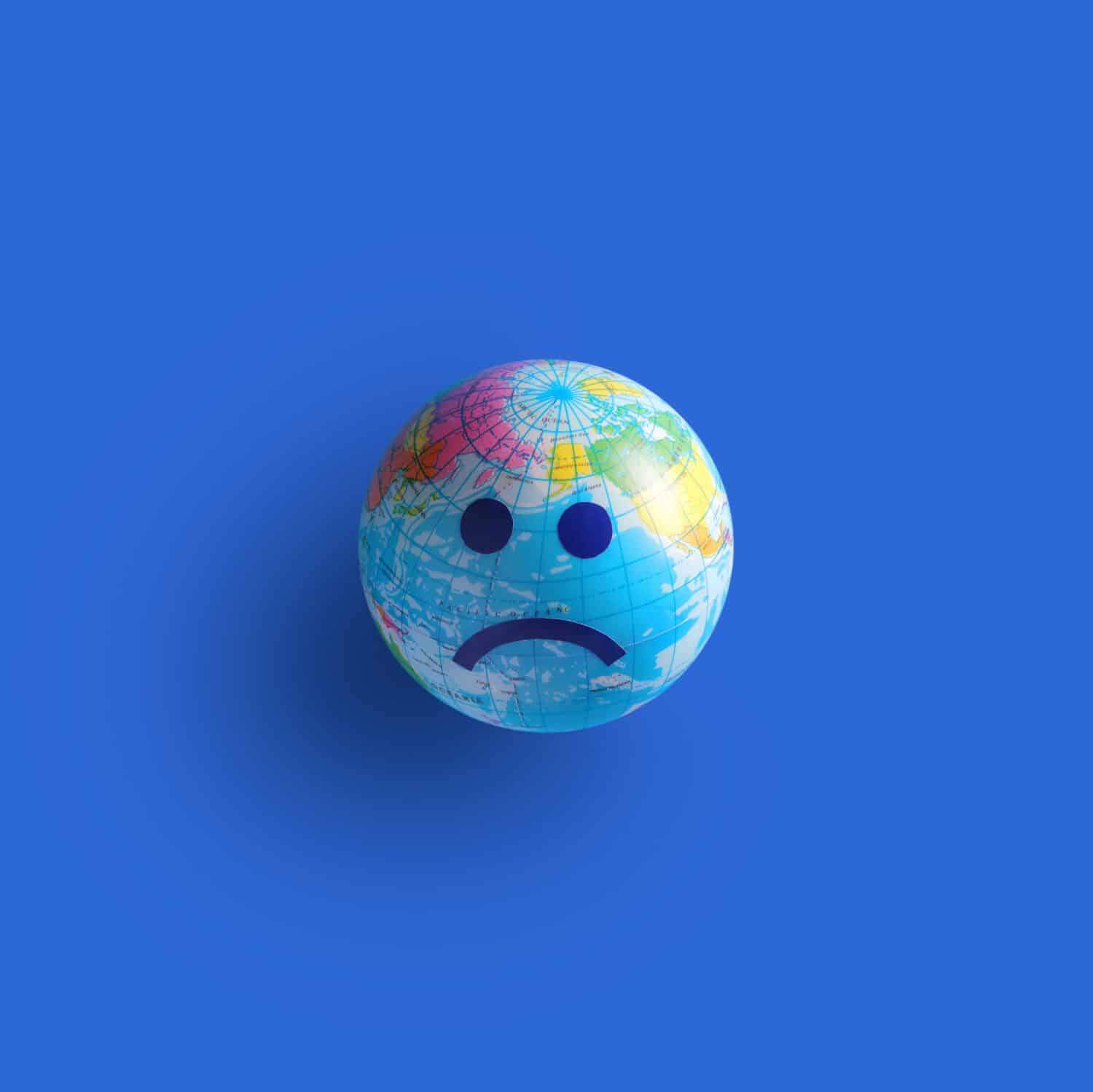
Happiness is an elusive quality for individuals, families, and whole countries. That doesn’t deter us from trying to get more of it and to compare how happy we are in relation to others. Unfortunately, the desperate pursuit of it and comparison can be the very thing that robs us of our happiness.
In this article, we’ll look at how and why we measure happiness, a review of the most unhappy countries in the world and some of the factors that make life difficult there, and finally, what it would take to improve conditions in these countries at the national and individual level. We even have a list of ideas of how you can help, even right from home.
Methodology

We’re drawing our data from the Gallup World Happiness Report, which, from 2021-2023, surveyed over 100,000 people in 140 countries. Respondents were asked to rate their happiness on a scale of 0 (worst) to 10 (best). Some factors Gallup looked at that influenced people’s happiness were social support, GDP per capita, life expectancy, freedom to make choices, generosity, and the perception of corruption in the country.
We’ll list the 10 countries with the lowest happiness levels below, along with some recent data and analysis from sources such as the CIA World Factbook, the World Bank, and the International Monetary Fund.
Why Point It Out?

We certainly do not want to disrespect any countries where people are experiencing tragedy and distress. These conditions have complex causes that are usually outside the control of ordinary citizens. Understanding where in the world people are most unhappy and some reasons for that is significant to all of us, though, for some important reasons, as we’ll point out below.
Economic Advancement

Understanding which countries are most distressed shows us where our charitable giving to international relief and development organizations may be most needed. It can also help us make large and small investment decisions, whether that is in investing in a company that may help improve the quality of life in an unhappy country or choosing personally to buy coffee or other products produced there to support business development.
Intangible Benefits

Becoming aware of struggles in other countries can help us be better informed and communicate more sensitively when interacting with clients, colleagues, or new friends who have emigrated from those countries. It can also help us develop a greater sense of gratitude, which is a state of mind proven to be strongly associated with happiness in psychological research studies.
10. Zambia (Score: 3.502)
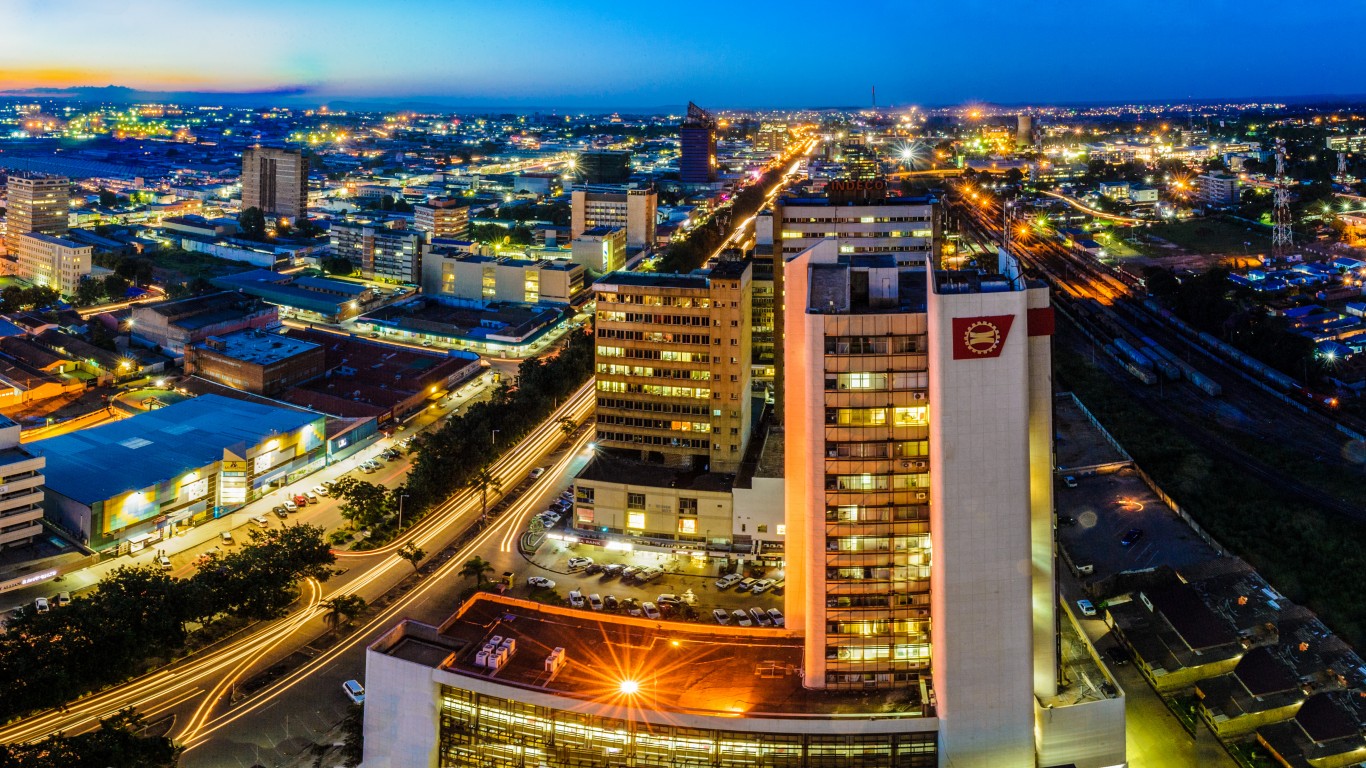
Zambia is one of the poorest countries in the world, with over 60% of the population living below the poverty line. Despite having abundant water and fertile agricultural land, the country struggles to feed its people. It is currently weathering a severe drought that threatens to produce food shortages. Rural areas are sparsely populated, with about half of Zambians living in cities and along the main transportation routes. The economy has been heavily dependent on copper exports, which makes this landlocked country vulnerable to the closure of trade routes and market price fluctuations. Zambia has faced international criticism on human rights grounds, particularly in its treatment of LGBT people.
9. Eswatini (Score: 3.502)
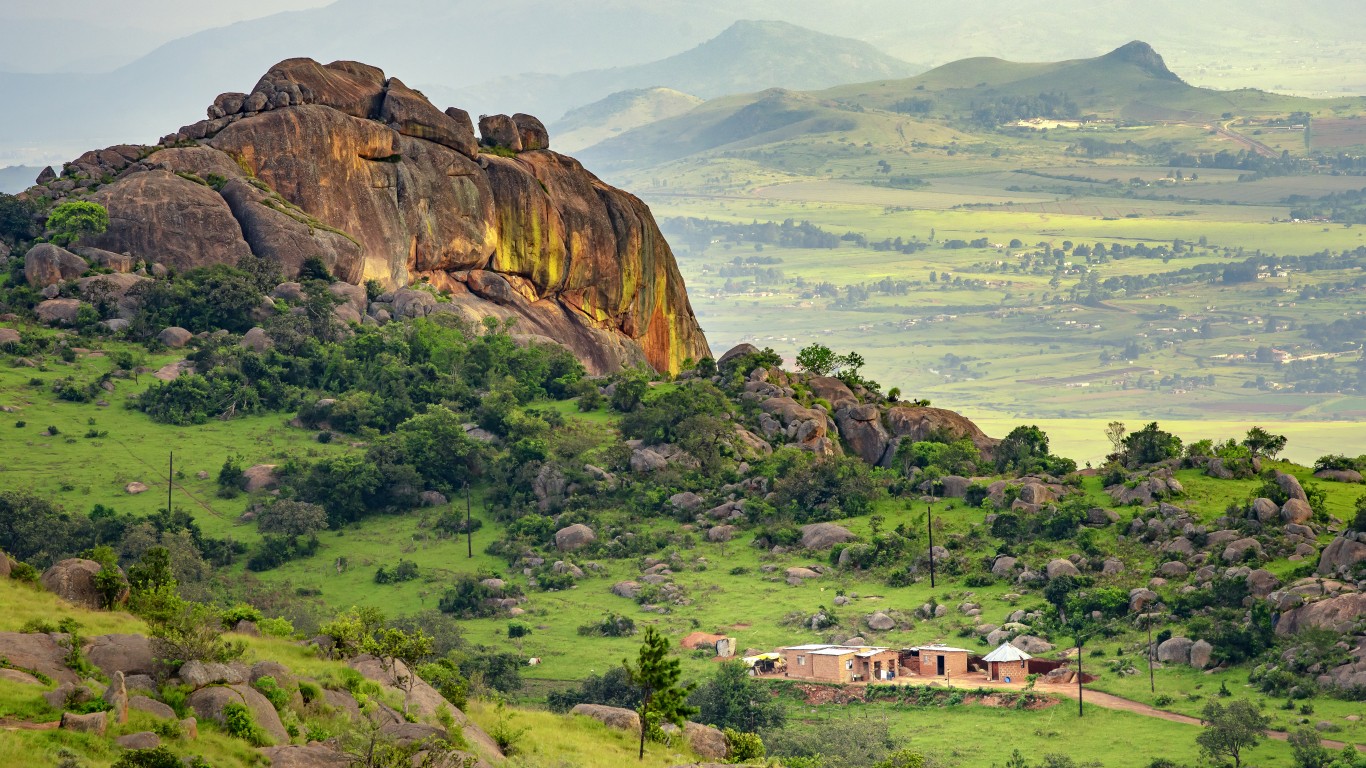
Eswatini is one of the smallest countries in Africa. It is landlocked, which limits its options for foreign trade. Per capita GDP is only $4,322. The country faces extraordinary healthcare issues, including an HIV/AIDS infection rate of about 26% and an average life expectancy of only 58 years. Eswatini is the last absolute monarchy in Africa. In recent years, the country has been rocked by pro-democracy protests. The king has permitted parliamentary elections that would not lessen his hold on power under the country’s current political system.
8. Malawi (Score: 3.421)
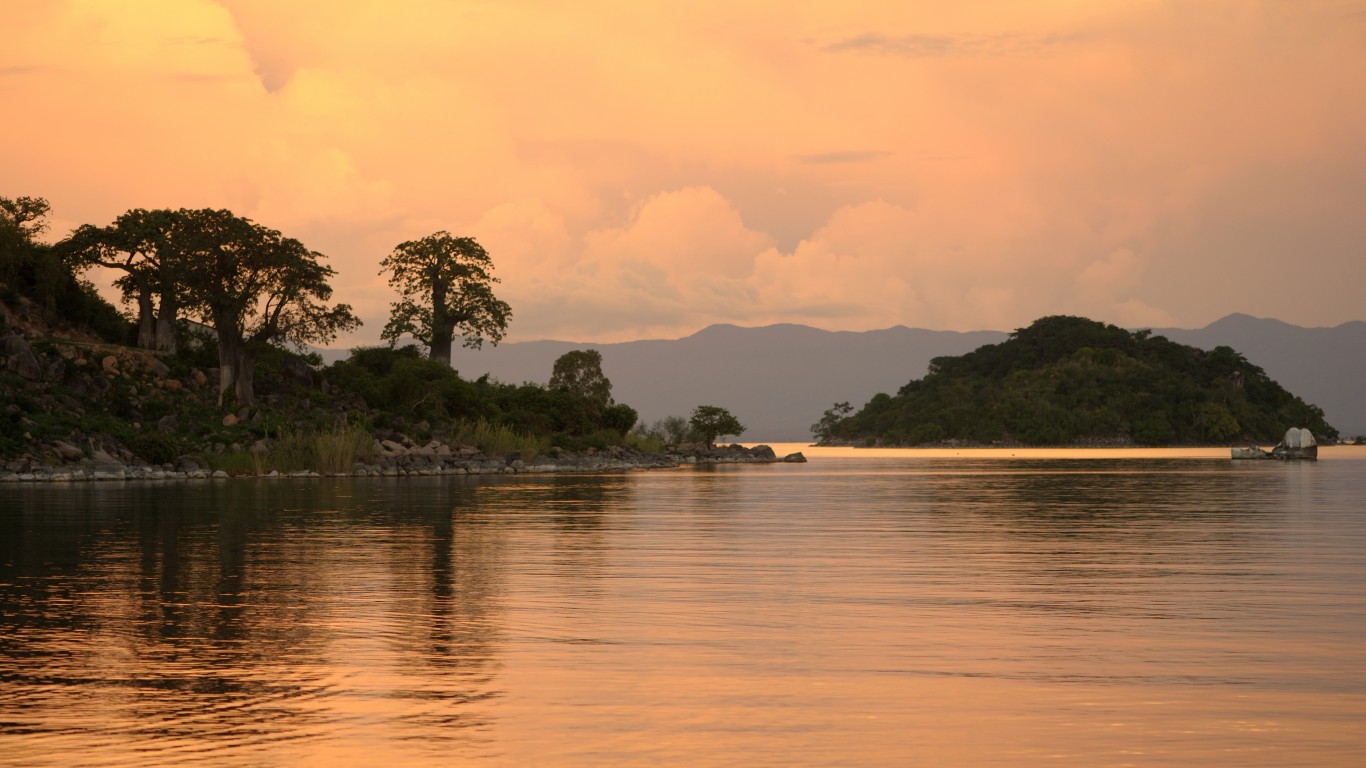
Like Zambia and Eswatini, Malawi is a landlocked country in southern Africa. Despite major economic reforms, it is desperately poor, with a per capita GDP of only $481. 70% of the citizens are in poverty. Four out of five people work in agriculture, making them vulnerable to droughts, flooding, and commodity price fluctuations. Although the economy is forecast to grow by 2% this year, this is actually a contraction because the population will grow by 2.6%. Malawi continues to work with foreign partners and international organizations on a development plan to reverse its downward trajectory.
7. Botswana (Score: 3.383
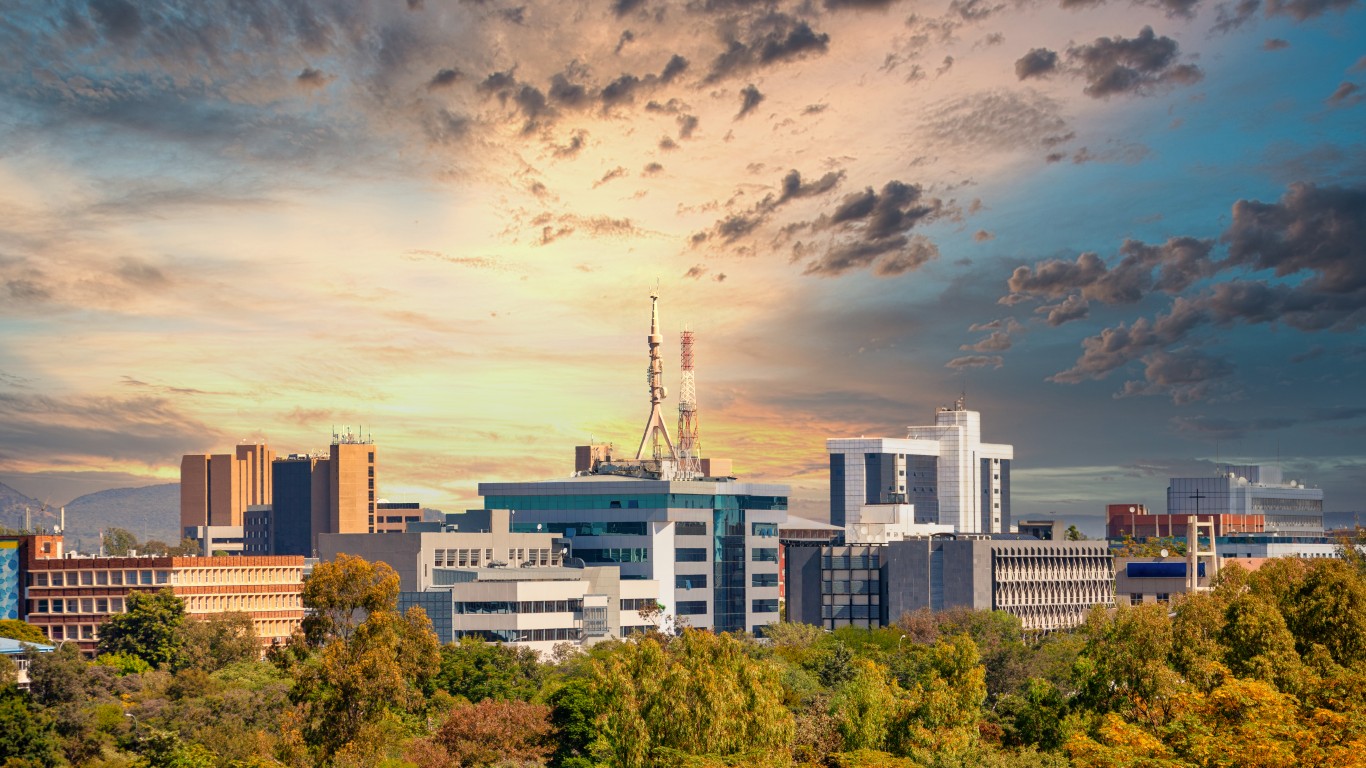
Botswana is located in Southern Africa. It is mineral-rich in diamonds, copper, nickel, salt, coal, silver, and more. About 73 percent of the population lives in urban areas. Botswana has benefited from sound economic management, and poverty has been rapidly declining to the point that it is considered an upper-middle-income country today. The per capita GDP is $7,880.
So why do people feel so miserable there? The country has high unemployment and had a sharp economic contraction due to COVID-19. Citizens cite a lack of social support, short life expectancy, gender violence, and income inequality as key sources of unhappiness. Some even cite the perceived unhappiness of the country’s President as influencing the population’s subjective sense of contentment.
6. Zimbabwe (Score: 3.341)
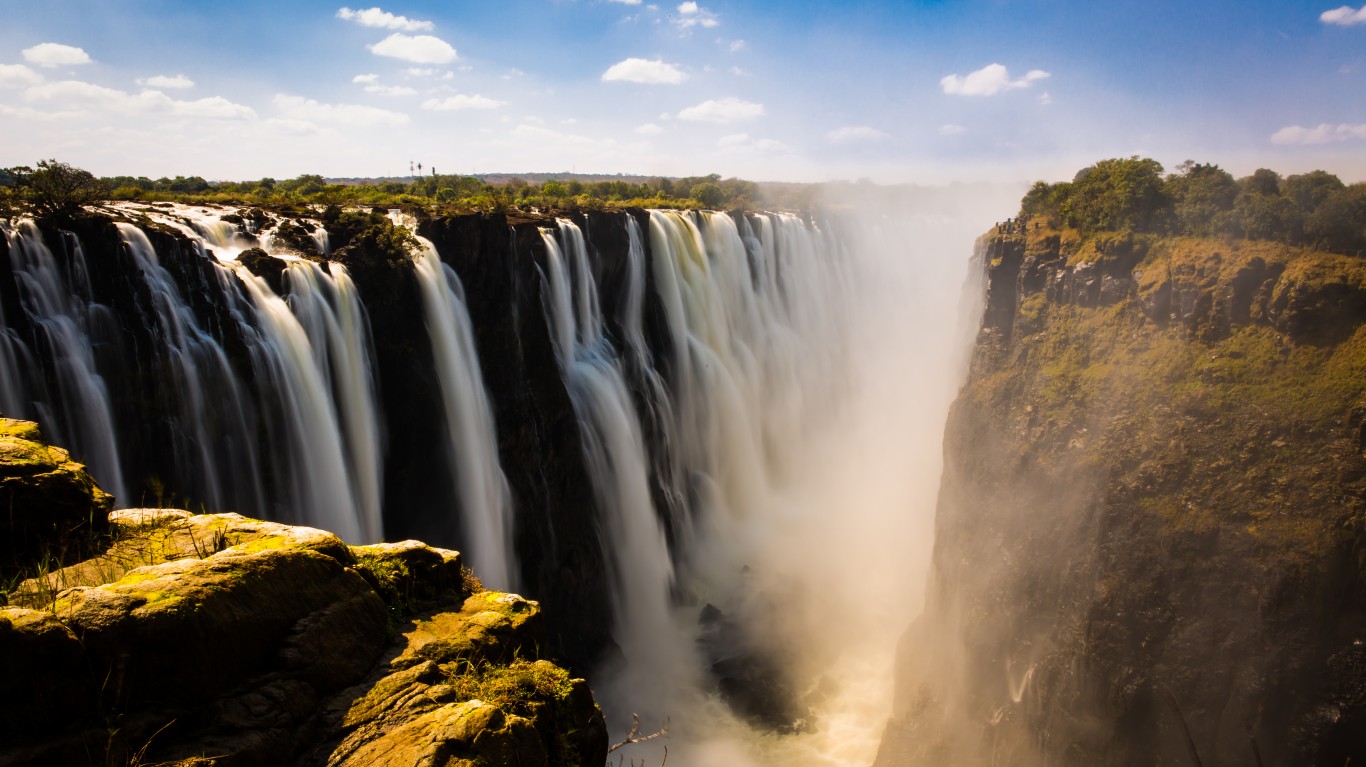
Zimbabwe is another Southern African country under distress. The per capita GDP is $1,677. Its main sources of income are agriculture and mining. It has rich deposits of chromite, coal, asbestos, copper, nickel, gold, platinum, and iron ore. Agricultural production was severely disrupted in 2000 by a land redistribution that broke up white-owned commercial farms and gave the land to indigenous people and members of the administration, who had neither the interest nor the know-how to continue the farms as profitable enterprises. The country has suffered through a catastrophic decline in food production and some of the worst hyperinflation of any country in history. It has dealt with this problem in part by accepting the U.S. dollar and several other major currencies as the country’s official media of exchange.
5. Democratic Republic of the Congo (Score: 3.295)
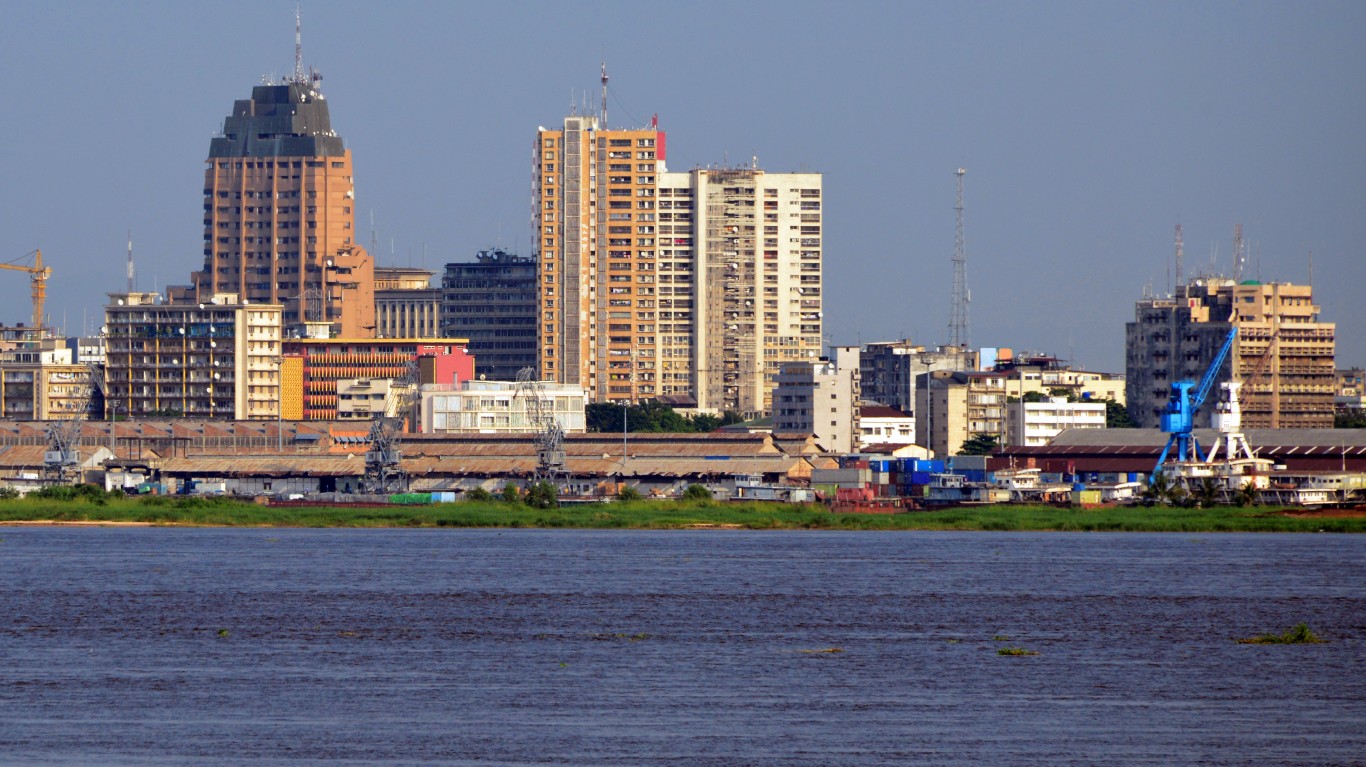
In the Democratic Republic of the Congo, the per capita GDP is a tiny $715. The country and its people experienced the most horrific abuses imaginable by the Belgian colonial authorities and the exploitation of its natural resources. Peace has been elusive since independence in 1960, with the country going through multiple changes of government and civil wars. In fact, only in 2018 did the DRC experience its first peaceful transfer of power. Although it is the second-largest country in Africa and rich in natural resources, it is classified as a least developed country by the UN.
4. Sierra Leone (Score: 3.245)
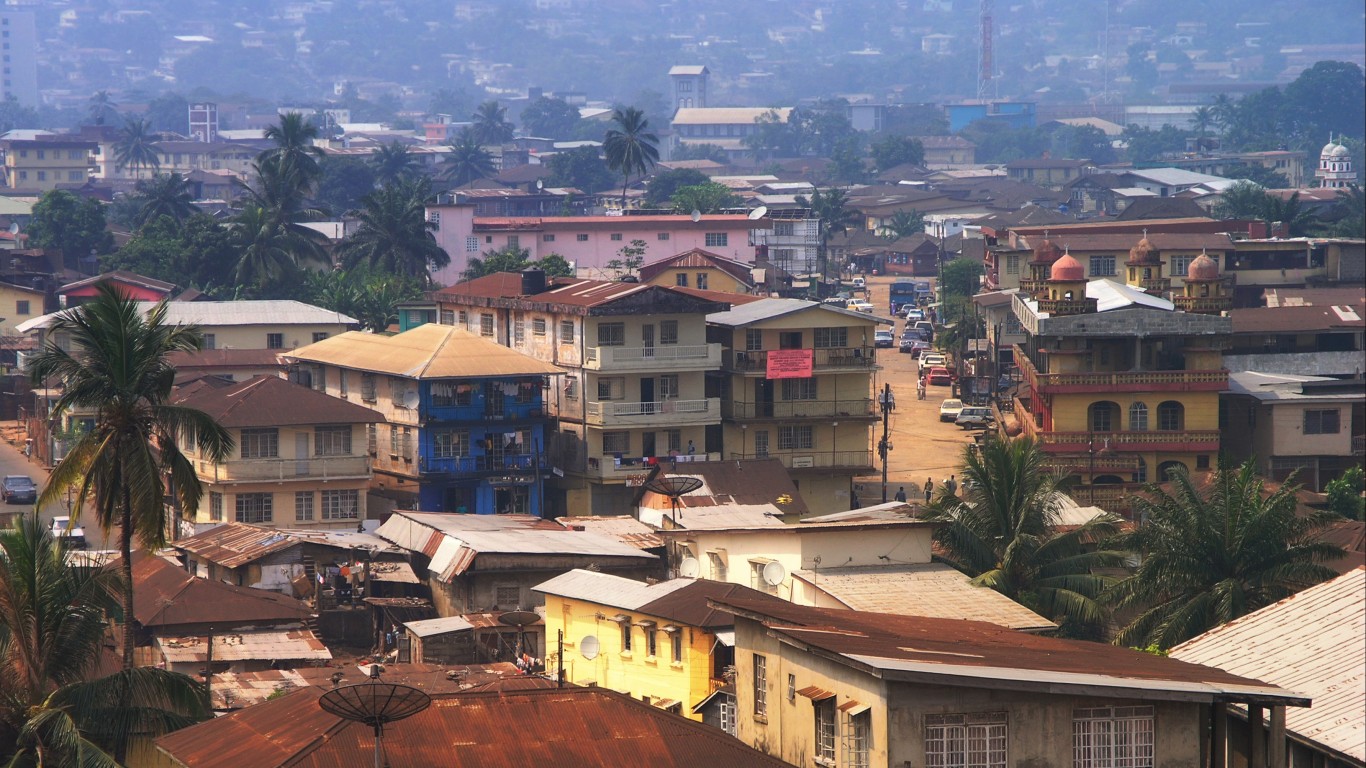
Sierra Leone is a former British colony in West Africa, founded as a homeland for freed British slaves, much like neighboring Liberia was for American slaves. The country attained independence in 1961 but was politically unstable and endured numerous rebellions and coup attempts. It experienced a full-on civil war from 1991-2002 that required international intervention to end. Sierra Leone also had to deal with an outbreak of Ebola in 2014 that led to a national state of emergency. Some of the problems that make people in the country dissatisfied include corruption, high unemployment, and slow progress in privatizing state-owned enterprises. The per capita GDP is only $527.
3. Lesotho (Score: 3.186)
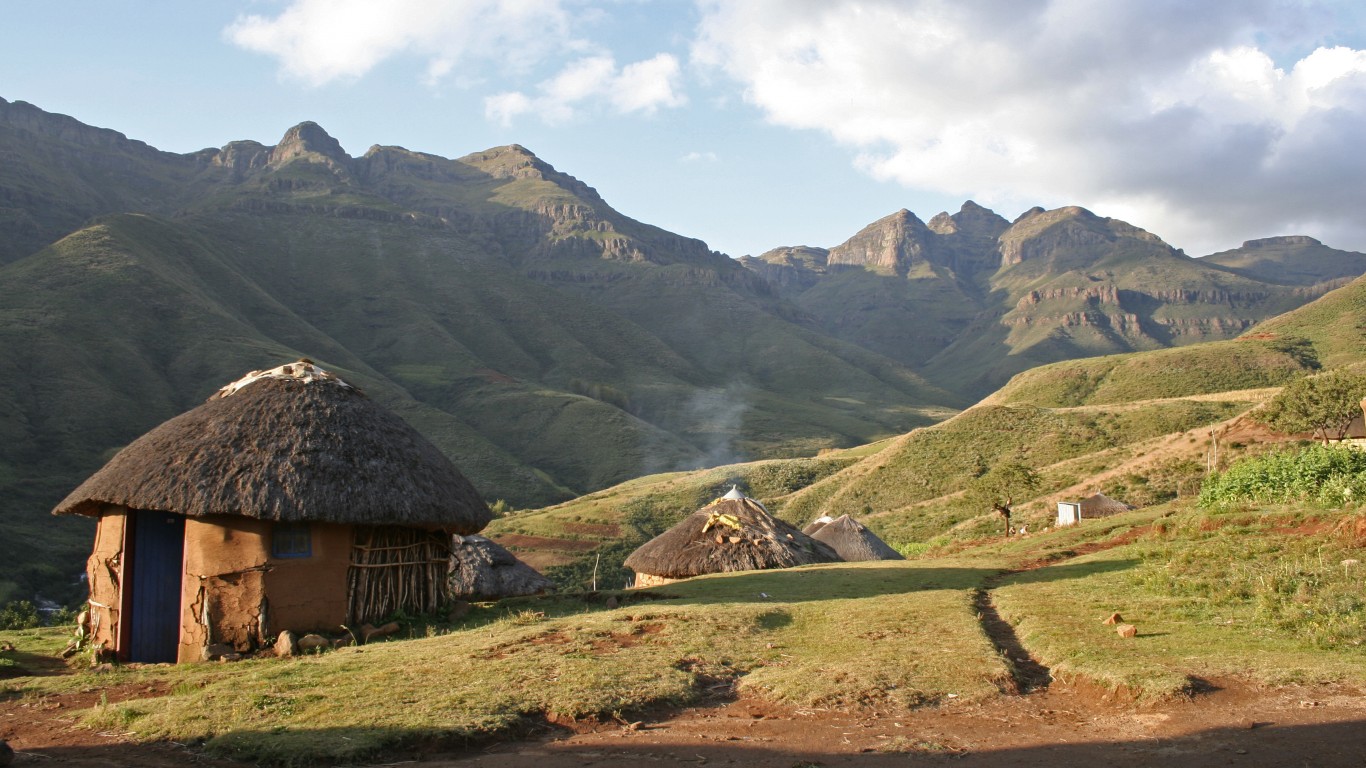
Lesotho is a mountainous, landlocked country completely surrounded by the territory of South Africa. It exists because its king sought out British protection at a time when the region was being contested between Britain and the Boers (Dutch settlers). Lesotho today is a lower middle income country with a per capita GDP of $1,111. It has a high literacy rate, but about half the population lives below the poverty level and there is a very high prevalence of HIV/AIDS.
2. Lebanon (Score 2,707)
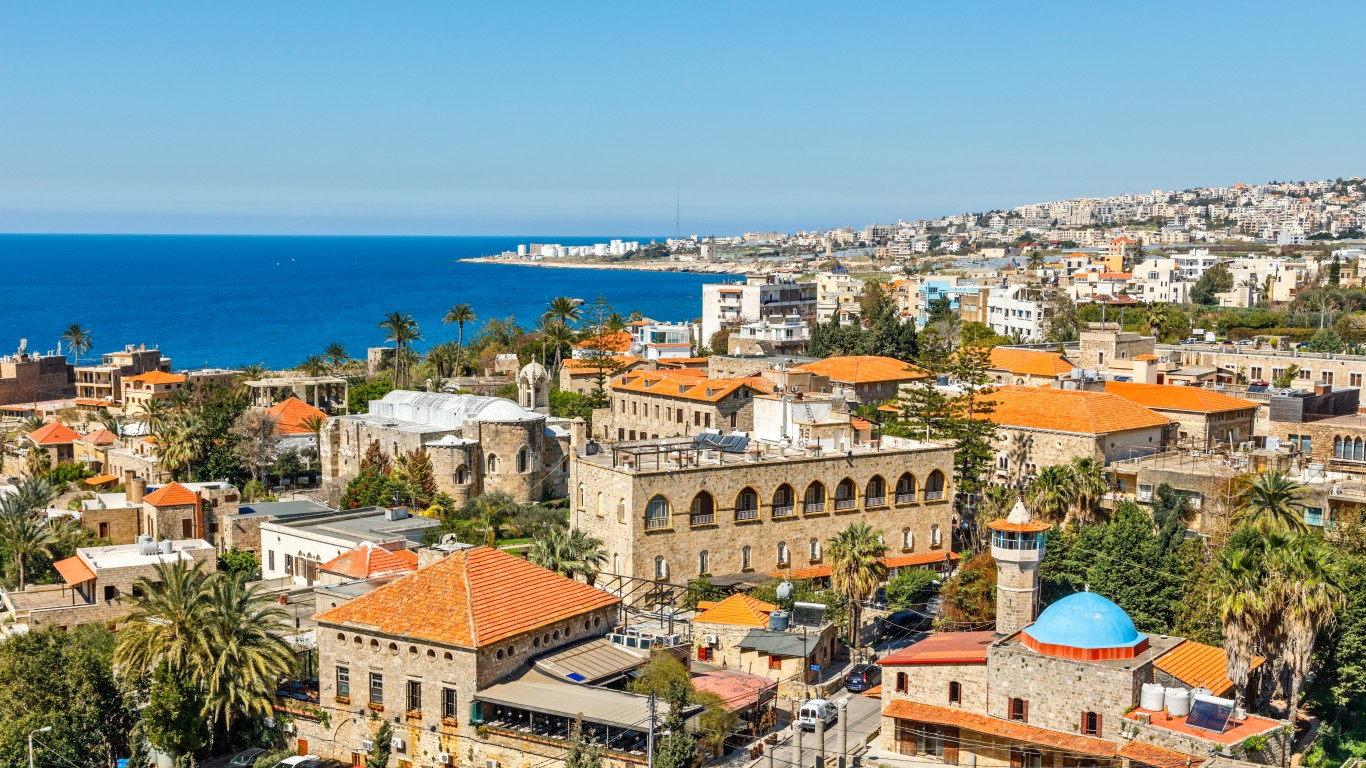
Lebanon is a culturally diverse country with a complex history involving a clash of cultures between Europeans and Middle Easterners, Arabs and Jews, Christians and Muslims, and Shiites and Sunnis. The weak central government has been unable to retain complete control of the country, so terrorists and weapons have flowed in from Iran, Iraq, and Syria. The Israelis have invaded in the past to neutralize terror threats, and there is a danger they will do so again if Hezbollah cannot be prevented from firing rockets into Israel.
In 2020, improperly stored ammonium nitrate equivalent to 1.1 kilotons of TNT exploded in Beirut so powerfully that it shook the entire country and was felt in neighboring countries. As a result of this $15 billion disaster, as well as corruption, a high unemployment rate, and poverty, Lebanon is currently going through the sharpest economic crisis in its history.
1. Afghanistan (Score: 1.721)
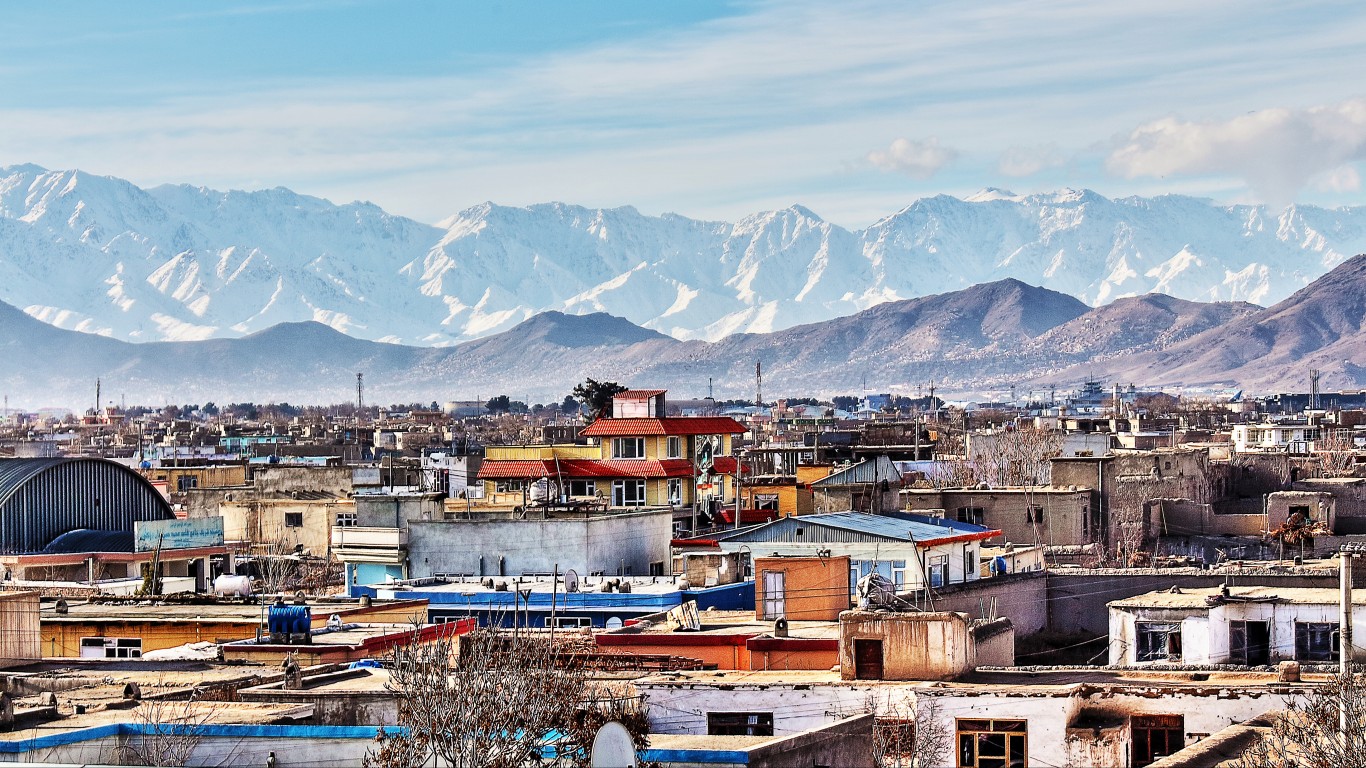
Afghanistan is one of the most troubled countries in the world. Although geographically remote and full of forbidding mountain and desert terrain, it is strategically positioned between great powers like China, Russia, Iran, and India, though not bordering all of them. Invasions by the Soviet Union (1979-1989) and the United States (2001-2021) failed to subdue the country. Today it is under the control of the Taliban, an Islamic fundamentalist terroristic organization that severely represses human rights, especially for women. The country’s broken economy yields for its citizens a per capita GDP of only $200.
What Can Make These Countries Happy?

According to the World Happiness Report, there are six key areas that should be in place to make the citizens of a country feel happy. We can divide these into three main groups: economic, political, and cultural.
1. Economic: Per Capita GDP

Money by itself can’t make people happy, but the lack of it can certainly create a lot of misery. Per capita GDP is one of the six areas the World Happiness Report highlights as essential for citizen’s sense of well-being. Fixing this issue is not just a matter of giving handouts, which can create dependency, loss of self-respect, and resentment. Instead, it requires job creation so that more people have the opportunity to be gainfully employed and upwardly mobile. Creating those jobs means, in many countries, making painful reforms to privatize state-owned enterprises, control spending, and implement market reforms that may be unpopular at first.
2. Economic: Healthy Life Expectancy
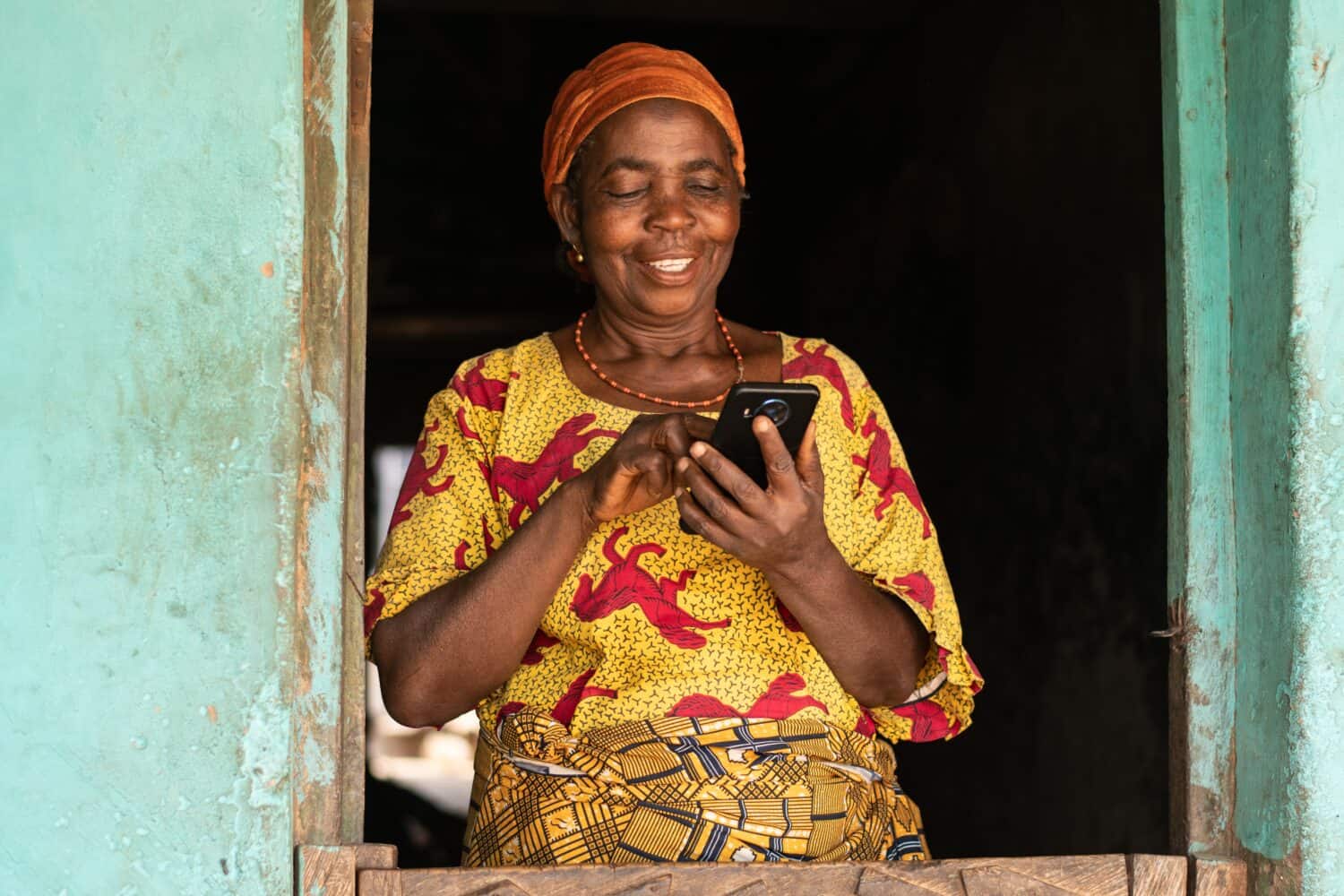
An increased GDP will impact a second essential area for happiness: a healthy life expectancy. We’ve classified this as an economic area because it is so closely tied to the standard of living. Decent jobs and wages would mean people can eat better, get more rest, create safer and cleaner living spaces for themselves, become better educated, and afford medical care. Moreover, they will pay more taxes that can be directed in part toward improving the health care system.
3. Political: Low Levels of Corruption

One of the major impediments to development in struggling countries is corruption. Foreign aid and revenues from exploiting natural resources can be misdirected to line the pockets of government workers and wealthy elites. Money that could be invested in the country may be embezzled and stashed in foreign bank accounts where it does no good for the people. Knowing this, foreign countries and multinational companies may either exploit this corruption to their own benefit or avoid investing at all in this environment. Fighting corruption is extraordinarily difficult, especially in a country where the government is unstable and subject to pressure from powerful and ambitious people who operate outside the law.
4. Political: Freedom

Freedom is a second political area that is vital to citizens’ happiness. People need to have a sense that they are in control of their own lives and that they have legitimate choices in areas that matter to them. This does not necessarily mean that people are unhappy if they don’t have all the democratic freedoms we do in the West. In countries without democratic traditions, such as the oil-rich kingdoms of the Persian Gulf, it’s sometimes possible to “buy off” the citizens with free healthcare, education, subsidized energy, and other benefits so that they will be compliant with authoritarian leadership. But in those situations, wealth affords the citizens a great deal of freedom in their personal lives, even if at the expense of political freedom.
In most of the world, where this approach is not possible, people can feel better about their lives if they can participate meaningfully in choosing their leaders and have a sense that a better future is possible, even if they aren’t living it at the moment. And such political involvement creates more accountability for governments that are underperforming for their citizens.
5. Cultural: Social Support

Happy people live in countries where there is some kind of social safety net for vulnerable citizens: children, the elderly, the disabled, etc. But this does not have to be provided 100% by the government. With enough resources, families are able to care for their own without having to rely on outside institutions. In some societies, religious organizations teach charity and provide substantial care to those most in need. So, countries can find ways to meet these needs in ways that fit their budgets and traditional social systems.
6: Cultural: Generosity
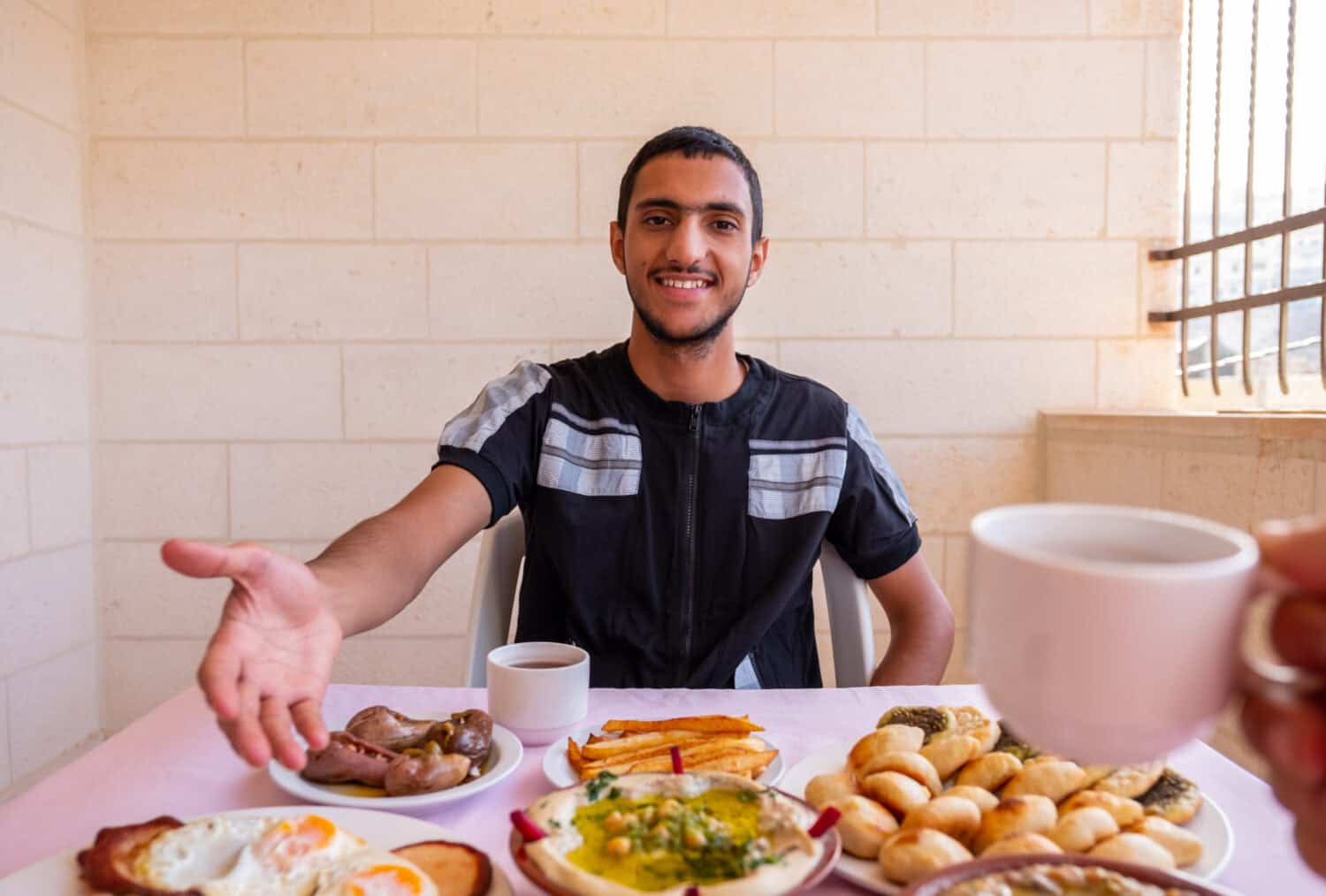
Generosity is a spontaneous expression of goodwill toward one’s fellow human beings. Governments can confiscate and redistribute resources, but they can’t legislate that people suddenly become generous. What they can do is highlight and celebrate examples of it in the culture, from both ordinary people and opinion-shapers such as celebrities and business and political leaders. This can reshape public perceptions of their country and inspire them to behave in generous ways themselves. This is also an area where, in a deeply religious population, faith leaders can assist with emphasizing this quality that is taught in all major religions.
How Can You Help?

Here are a few ideas of how you, personally, could help countries where people are lacking in one or more of these six areas of happiness:
- Direct your spending toward ethically produced imported products from countries in need.
- Travel there and spend tourist dollars, or go on a humanitarian trip to lend your talents to needed service areas.
- Provide English conversation practice for international people online at sites like Preply.com. English is a marketable skill, and you will have influence on the students’ worldviews as well.
- Encourage your political leaders to support well-targeted, monitored foreign aid to countries where it is most needed.
- Move abroad to teach, to work remotely, or to retire. You’ll spend money in the local economy and have cultural influence that will benefit some people.
- Become well-informed about international development issues and share your knowledge in conversation with others to build greater understanding and involvement.
It’s Everyone’s Problem
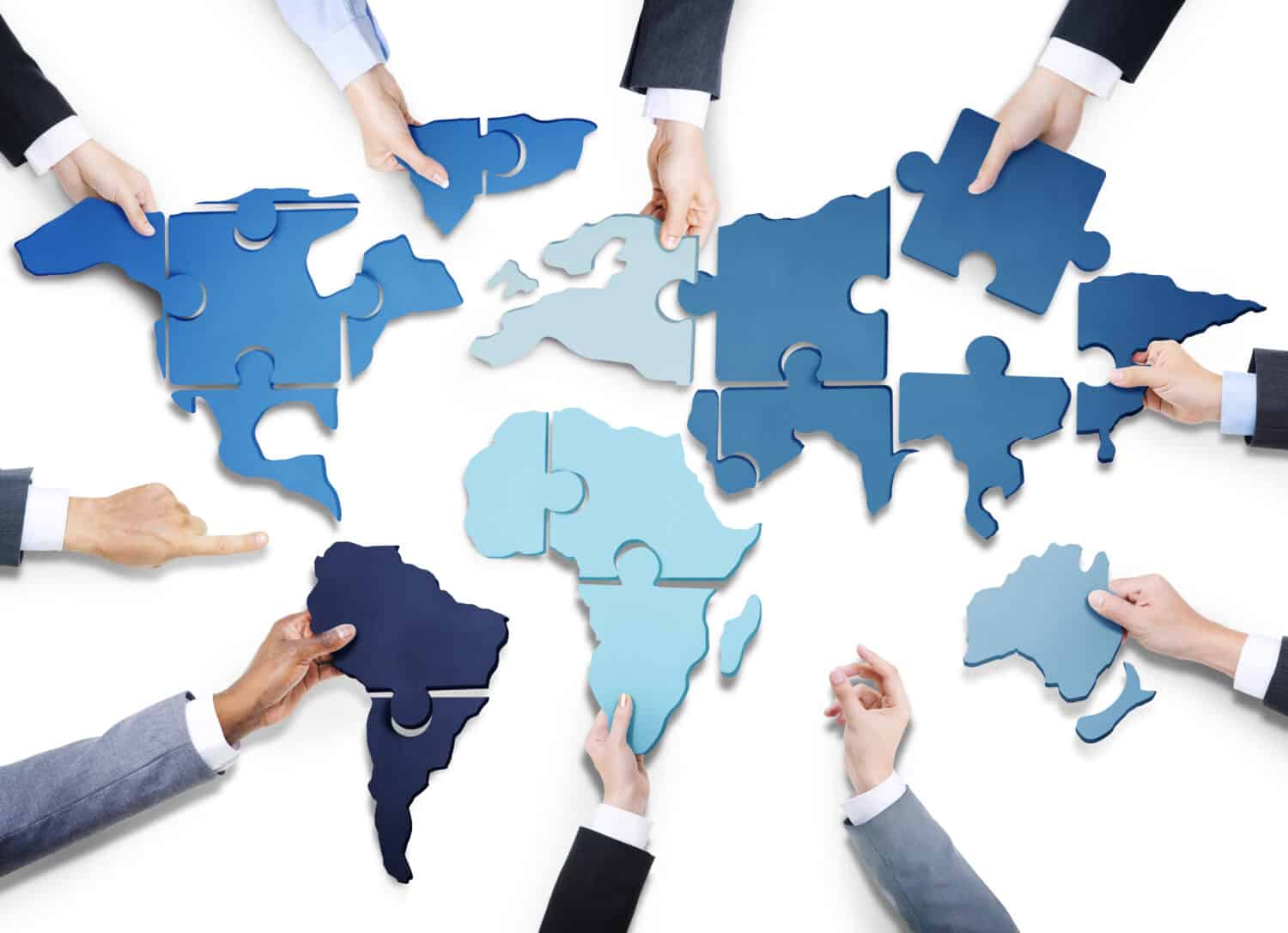
Finally, we might be tempted to think that these are just other people’s problems that need not concern us. But deep unhappiness in poverty-stricken countries leads to worse things. Things like civil war, genocide, and opportunities for terrorist groups to get entrenched and become a problem for the world.
Consider Osama bin Laden, who found troubled Afghanistan a convenient place to plot the 9/11 attacks. The result was the death of thousands of innocent Americans and a 20-year war. A war that cost the United States $1-2 trillion, or $150-300 million a day for 20 years. That’s up to twice what the military would spend in its normal operations and maintenance for an entire year, being spent daily. Seen in that perspective, proactive efforts to help people overseas improve their lives seem like a prudent and cost-effective insurance policy against the next bin Laden.
Travel Cards Are Getting Too Good To Ignore (sponsored)
Credit card companies are pulling out all the stops, with the issuers are offering insane travel rewards and perks.
We’re talking huge sign-up bonuses, points on every purchase, and benefits like lounge access, travel credits, and free hotel nights. For travelers, these rewards can add up to thousands of dollars in flights, upgrades, and luxury experiences every year.
It’s like getting paid to travel — and it’s available to qualified borrowers who know where to look.
We’ve rounded up some of the best travel credit cards on the market. Click here to see the list. Don’t miss these offers — they won’t be this good forever.
Thank you for reading! Have some feedback for us?
Contact the 24/7 Wall St. editorial team.
